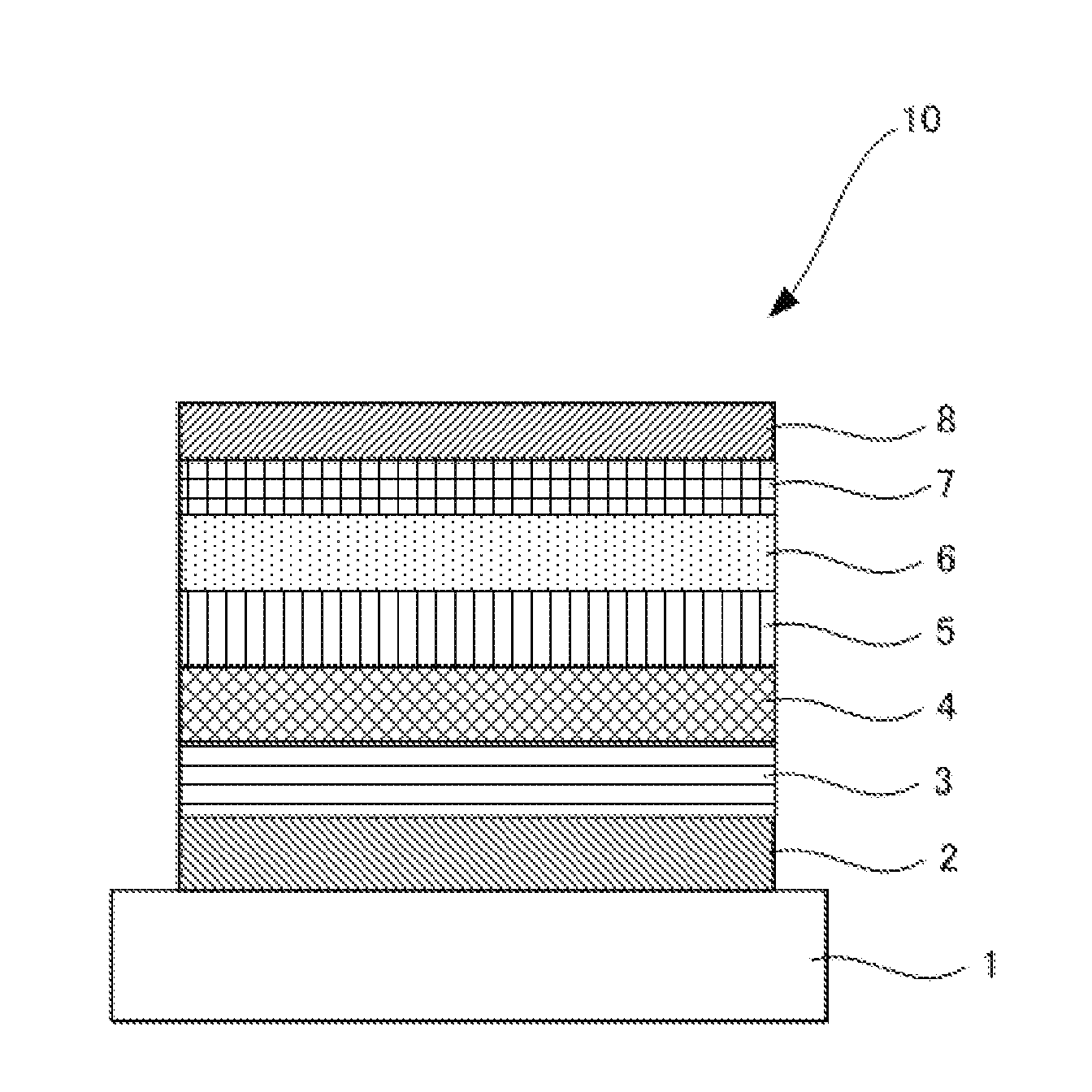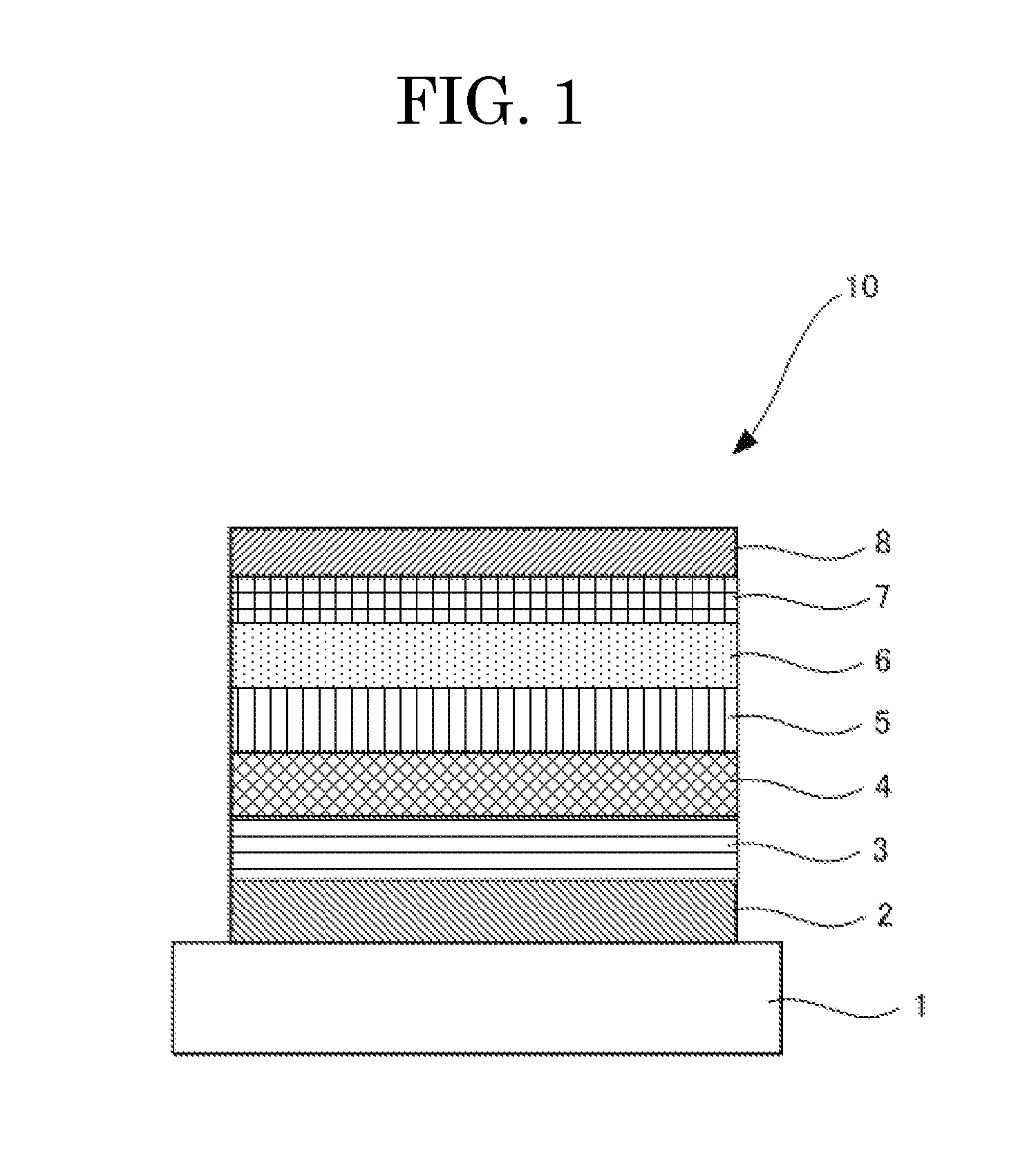Organic electroluminescent element and method for producing the same
a technology of electroluminescent elements and organic solvents, which is applied in the direction of thermoelectric device junction materials, electrical equipment, and semiconductor devices, etc., can solve the problems of inability to improve the adhesiveness, the performance of the resultant element may be adversely affected by the residual solvent in the functional layers, and the durability of the element cannot be improved. , to achieve the effect of high interlayer adhesiveness and durability
- Summary
- Abstract
- Description
- Claims
- Application Information
AI Technical Summary
Benefits of technology
Problems solved by technology
Method used
Image
Examples
example 1
[0148]A glass substrate, 0.5 mm thickness and 2.5 cm×2.5 cm, was placed in a washing case, where it was ultrasonically washed in 2-propanol. The thus-washed glass substrate was subjected to UV-ozone treatment for 30 minutes. Onto the resulting glass substrate, each layer described below was deposited by the vacuum deposition method.
[0149]The deposition was conducted using a vacuum deposition apparatus (product of Tokki Corporation) and, unless otherwise specified, the deposition rate was 0.2 nm / s The deposition rate and the thickness of each layer were determined by measuring, using a film thickness monitor (CRTM-9000, product of Ulvac, Inc.), the deposition rate of the deposition material on a crystal oscillator located distant by the same distance as that between the deposition source and the substrate.
[0150]Also, the surface roughness Ra of the deposition layer was an average of five measurements which were obtained by measuring a 2 μmm×2 μm measurement region five times on a tap...
example 2
[0161]An organic electroluminescent element of Example 2 was produced in the same manner as in Example 1, except that the following hole transport material 2 was used instead of the hole transport material 1 to form the second hole transport layer.
example 3
[0162]An organic electroluminescent element of Example 3 was produced in the same manner as in Example 1, except that the following hole transport material 3 was used instead of the hole transport material 1 to form the second hole transport layer.
PUM
 Login to View More
Login to View More Abstract
Description
Claims
Application Information
 Login to View More
Login to View More - R&D
- Intellectual Property
- Life Sciences
- Materials
- Tech Scout
- Unparalleled Data Quality
- Higher Quality Content
- 60% Fewer Hallucinations
Browse by: Latest US Patents, China's latest patents, Technical Efficacy Thesaurus, Application Domain, Technology Topic, Popular Technical Reports.
© 2025 PatSnap. All rights reserved.Legal|Privacy policy|Modern Slavery Act Transparency Statement|Sitemap|About US| Contact US: help@patsnap.com



